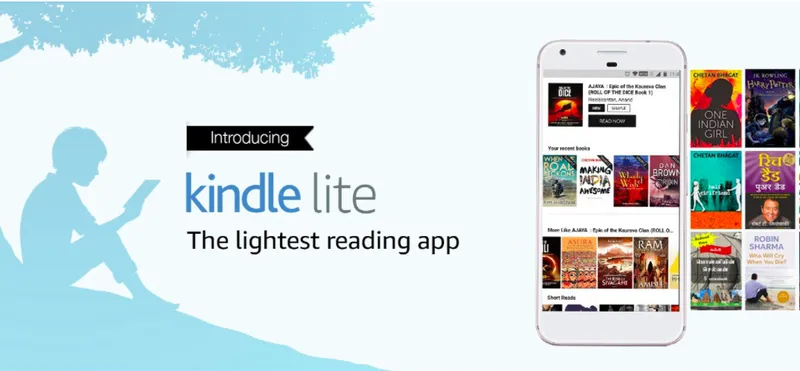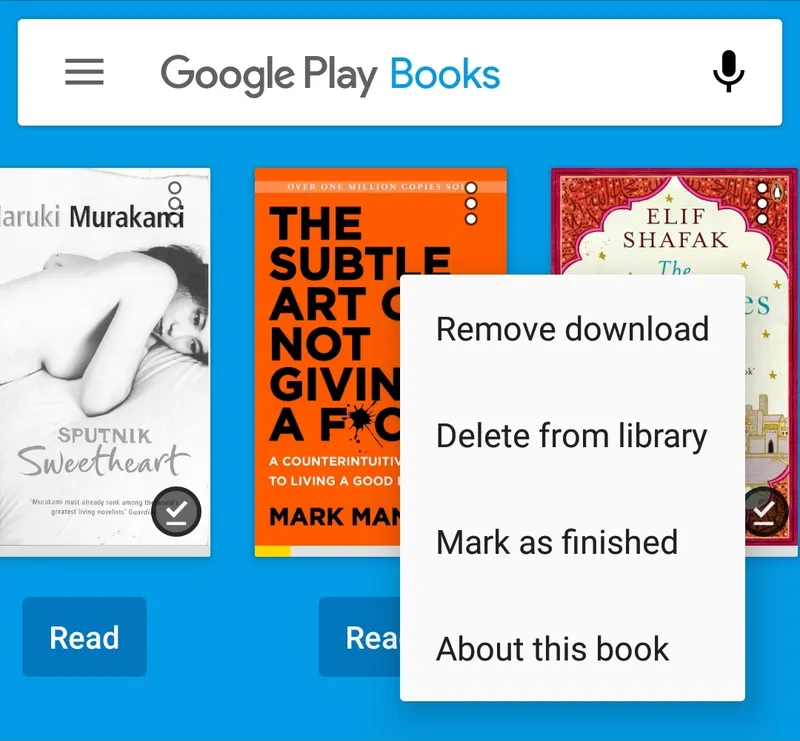These 5 reading apps have hit the sweet spot of variety, affordability, and accessibility
Ebooks are a growing segment in India’s publishing industry. Technology has played a major role, and these 5 reading apps are riding the wave.
The explosive growth of smartphones in India has led to an overall increase in the consumption of digital content. The ripple effect is now being felt in the world of publishing too.
According to industry estimates, digital books - or ebooks - contribute 5 percent to overall book sales in the country. While that is hardly a significant share, ebooks occupied less than 1 percent of the publishing pie not very long ago. Flipkart, which pioneered online book buying in India, had to shut down its ebook service in 2015 because the market was so niche and non-conducive.
But the story has changed of late.

India has witnessed a rise in the consumption of reading devices, book apps, book gifting options, audiobooks, self-publishing platforms, etc. Overall affordability and accessibility have gone up a few notches. Sample this: In 2016, sales of Amazon Kindle increased 80 percent. Kindle owners were buying 10 times more ebooks than paperbacks.
According to Statista, India’s ebook market is worth $125 million in 2018, and is growing at 14.3 percent annually. By 2022, ebooks will bring about $214 million in revenues for the domestic publishing industry. Over 70 percent of publishers now release ebook versions of book titles.
Additionally, the rise of reading apps and online publishing platforms has made India’s regional literature more far-reaching. Not only are ecommerce players selling more regional books, all major apps now stock thousands of titles in non-English languages.
The National Youth Readership Survey revealed that out of 83 million Indians who considered themselves “book readers”, only 55 percent consumed English books. About 35 percent read in Hindi, while the rest preferred vernacular languages.
YourStory lists down the best reading apps in India right now.
Kindle Lite

Launched in March this year, Kindle Lite is Amazon’s India-first version of the original Kindle app. It is a surprisingly light offering (2MB only) tailored for reading on slow mobile networks. Despite being a watered-down version of the actual app, it retains Kindle’s top features, including personalised recommendations, instant reading options, image zoom, night-mode, and Whispersync (that allows cross-device syncing of ebooks). More than 30,000 free ebooks in English, Hindi, Tamil, Marathi, Gujarati, and Malayalam were made available to push adoption. The ebooks can be downloaded and stored for offline reading too. Amazon even announced an introductory cashback offer for Indian users. Kindle Lite has notched up 1 million downloads on Play Store.
Storytel
Swedish audiobook service Storytel debuted its app in India last November. Earlier this year, it tied up with a bunch of local publishers like HarperCollins India, Karadi Tales (which specialises in audiobooks), Penguin Random House, Duckbill, and others to Indianise its offering. Storytel’s strong focus on vernacular and India-centric titles differentiates it from other foreign apps. It currently stocks over a thousand titles in English, Hindi and Marathi. More regional titles will be added shortly. However, unlike Kindle, Storytel is a subscription-driven service (similar to Amazon’s Audible, which is rumoured to launch in India in 2019). A monthly plan costs Rs 299 and it comes with a 14-day free trial. Storytel too has recorded 1 million Play Store downloads.
Juggernaut

Juggernaut has a unique proposition: it is a mobile-first publishing platform besides being a reading app. In two years, it has notched up over a million downloads on Play Store. The Delhi-based startup, funded by UIDAI Chairman Nandan Nilekani among others, has popularised serialised fiction and the pay-per-story format among Indian readers. Juggernaut hopes to bring about a “cell phone novel” culture — that has reportedly taken over Japan — in India, which boasts over 300 million smartphone users. Besides Juggernaut’s own catalogue, the app also stocks titles from HarperCollins India and Duckbill. Unlike other apps, Juggernaut fosters reader-writer interactions, and mandates all contracted authors to spend time responding to reader queries on its platform.
Pratilipi
Bengaluru-based self-publishing startup Pratilipi is giving voice to “Bhasha literature” or India’s non-English writing. On the Pratilipi platform, users can read, write, and download free stories, books, poems, articles, magazines, and ebooks across eight Indian languages - Hindi, Bengali, Malayalam, Tamil, Telugu, Kannada, Marathi, and Gujarati. Pratilipi claims it has 1.2 million readers and 26,000+ writers on its platform, and more than 9.5 million content pieces are read every month on mobile and desktop. Its Android app has been downloaded more than one million times. In February, Pratilipi raised Series A funding of $4.3 million led by Omidyar Network.
Google Play Books

Google Play Books is the world’s most downloaded (1 billion on Play Store) reading app. Its ubiquity could be because it comes preloaded (within Google’s app suite) in several Android smartphones, making it the default reading app for most users. Google launched Play Books in India in 2013 and made available over five million titles, of which several “thousands” are by Indian authors. The collection includes titles in Hindi, Bengali, Gujarati, Marathi, Tamil, Malayalam, etc besides English. Like Kindle, it doesn’t require a subscription; you just have to pay for the titles. In January this year, Google launched audiobooks in India within the Play Books app and integrated it with Google Assistant. Now, you can simply say ‘OK Google, play ___ book’ and get started.







